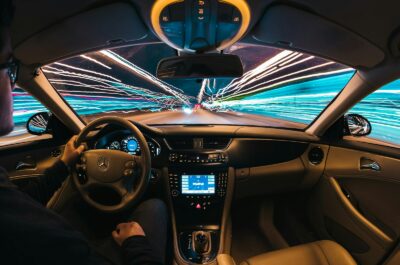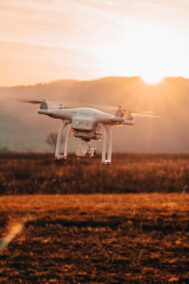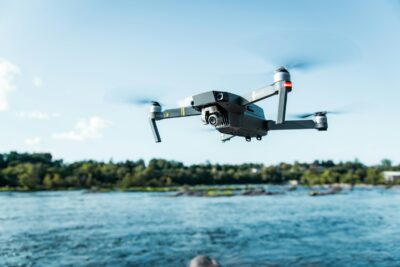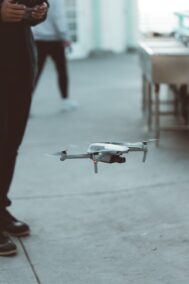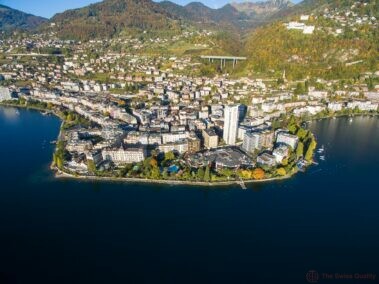Revolutionizing Urban Mobility with Autonomous Systems
The Rise of Self-Driving Cars in Saudi Arabia and the UAE
The development and deployment of autonomous systems, particularly self-driving cars, are set to revolutionize urban mobility in cities like Riyadh and Dubai. As key players in technological innovation, both Saudi Arabia and the UAE are embracing these advancements to enhance transportation efficiency and reduce traffic congestion. Self-driving cars, powered by Artificial Intelligence and advanced sensor technologies, promise to transform the way people commute, offering a safer, more efficient, and convenient mode of transportation.
In Saudi Arabia, the Vision 2030 initiative emphasizes the adoption of cutting-edge technologies, including autonomous vehicles, to create smart cities and improve the quality of life. Riyadh, as the capital, is at the forefront of these efforts, with numerous pilot projects and collaborations with leading tech companies to develop and test self-driving cars. These initiatives are designed to reduce traffic accidents, lower carbon emissions, and enhance urban mobility.
Similarly, Dubai’s Autonomous Transportation Strategy aims to make 25% of all trips autonomous by 2030. The city’s commitment to innovation is evident in its extensive testing and implementation of self-driving vehicles. The Roads and Transport Authority (RTA) has partnered with various technology firms to integrate autonomous systems into public transport and logistics. These efforts not only showcase Dubai’s leadership in smart transportation but also highlight the potential economic benefits, including reduced operational costs and improved transportation efficiency.
Drones: Transforming Logistics and Beyond
While self-driving cars are transforming urban mobility, drones are revolutionizing logistics and several other sectors. In both Saudi Arabia and the UAE, drones are being deployed for a wide range of applications, from delivery services to infrastructure inspection and emergency response. The use of drones in logistics is particularly impactful, offering faster, more efficient delivery solutions and reducing the dependency on traditional transportation methods.
In Riyadh, drones are being used to enhance logistics operations, particularly in last-mile delivery services. Companies are leveraging drone technology to overcome traffic congestion and deliver goods quickly and efficiently. This is especially beneficial in densely populated urban areas where traditional delivery methods are often slow and inefficient. The Saudi Arabian government is also exploring the use of drones for infrastructure monitoring, agricultural applications, and environmental conservation, further expanding their utility.
Dubai, known for its ambitious technological initiatives, is also at the forefront of drone innovation. The Dubai Civil Aviation Authority (DCAA) has established regulations to ensure the safe and efficient use of drones in various sectors. Drones are being used for commercial deliveries, medical supply transport, and even as part of the city’s smart city initiatives. The integration of drones into urban infrastructure not only enhances operational efficiency but also showcases Dubai’s commitment to leveraging advanced technologies for societal benefits.
Long-Term Societal Impacts of Autonomous Systems
Enhancing Safety and Reducing Environmental Impact
The widespread adoption of autonomous systems is expected to have significant long-term impacts on society, particularly in terms of safety and environmental sustainability. Self-driving cars, for instance, have the potential to dramatically reduce traffic accidents caused by human error. With advanced AI algorithms and sensor technologies, these vehicles can navigate complex urban environments more safely and efficiently than human drivers. In cities like Riyadh and Dubai, where traffic congestion and accidents are prevalent, the deployment of self-driving cars can lead to safer roads and fewer fatalities.
In addition to improving safety, autonomous systems can contribute to environmental sustainability. Self-driving cars are often designed to be more fuel-efficient and can optimize driving patterns to reduce emissions. In Saudi Arabia and the UAE, where environmental conservation is becoming increasingly important, the adoption of autonomous vehicles aligns with national goals to reduce carbon footprints and promote sustainable urban development. Drones, too, offer environmental benefits by reducing the need for traditional delivery vehicles and lowering greenhouse gas emissions.
Moreover, the integration of autonomous systems into public transportation can further enhance environmental sustainability. Autonomous buses and shuttles can provide efficient, low-emission alternatives to personal vehicles, reducing the overall number of cars on the road and decreasing air pollution. These advancements not only support environmental goals but also improve the quality of life for residents by creating cleaner, healthier urban environments.
Economic and Social Transformations
The deployment of autonomous systems is also expected to drive significant economic and social transformations. In Saudi Arabia and the UAE, where economic diversification and technological innovation are key priorities, autonomous systems present new opportunities for growth and development. The creation of new industries and job opportunities related to the development, manufacturing, and maintenance of autonomous systems can stimulate economic activity and drive technological advancement.
Furthermore, the adoption of autonomous systems can lead to increased efficiency and productivity across various sectors. In logistics, for example, drones and self-driving vehicles can streamline supply chains, reduce delivery times, and lower operational costs. These efficiencies can translate into cost savings for businesses and consumers alike, driving economic growth and competitiveness. In cities like Riyadh and Dubai, where commerce and trade are vital, the integration of autonomous systems can enhance the overall economic landscape.
On a social level, autonomous systems have the potential to improve accessibility and inclusivity. Self-driving cars can provide mobility solutions for individuals who are unable to drive, such as the elderly or disabled. This increased accessibility can enhance independence and quality of life for these individuals, promoting social inclusion. Additionally, the deployment of drones for emergency response and disaster relief can improve public safety and provide critical support in times of need.
Conclusion
The development and deployment of autonomous systems, including self-driving cars and drones, are poised to have profound impacts on society. In regions like Saudi Arabia and the UAE, where technological innovation is a cornerstone of national development, these advancements offer numerous benefits, from enhanced safety and environmental sustainability to economic growth and social inclusion. By embracing and integrating these technologies, cities like Riyadh and Dubai are leading the way in demonstrating how autonomous systems can shape a prosperous and equitable future.
#AutonomousSystems #SelfDrivingCars #Drones #AIinSaudiArabia #AIinUAE #RiyadhTechnology #DubaiInnovation



